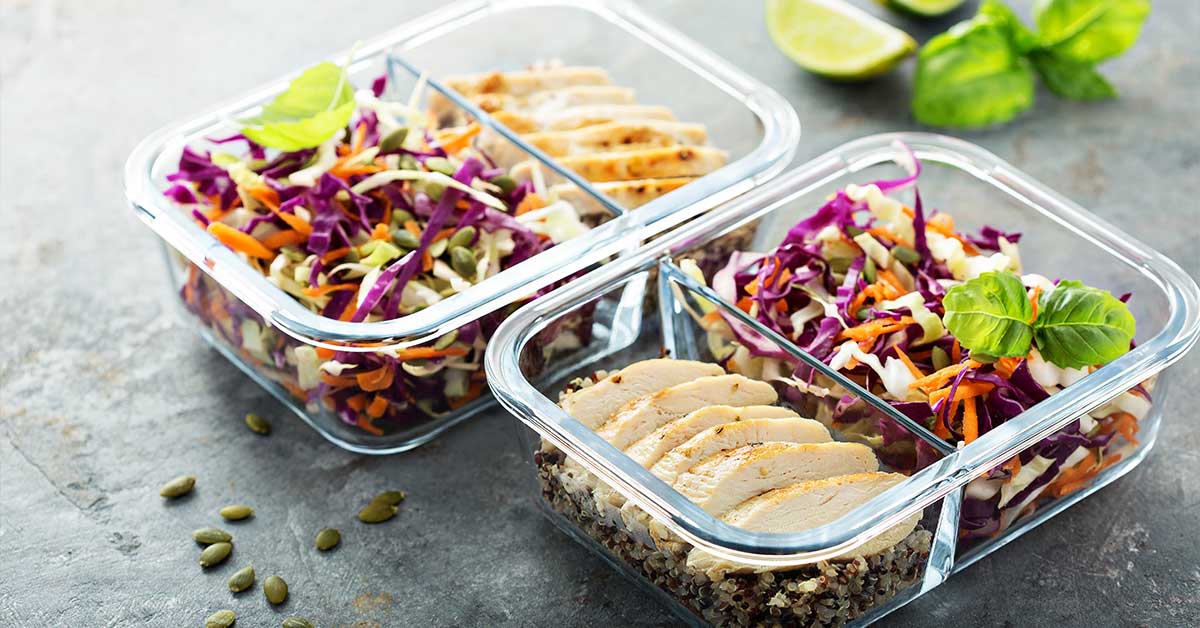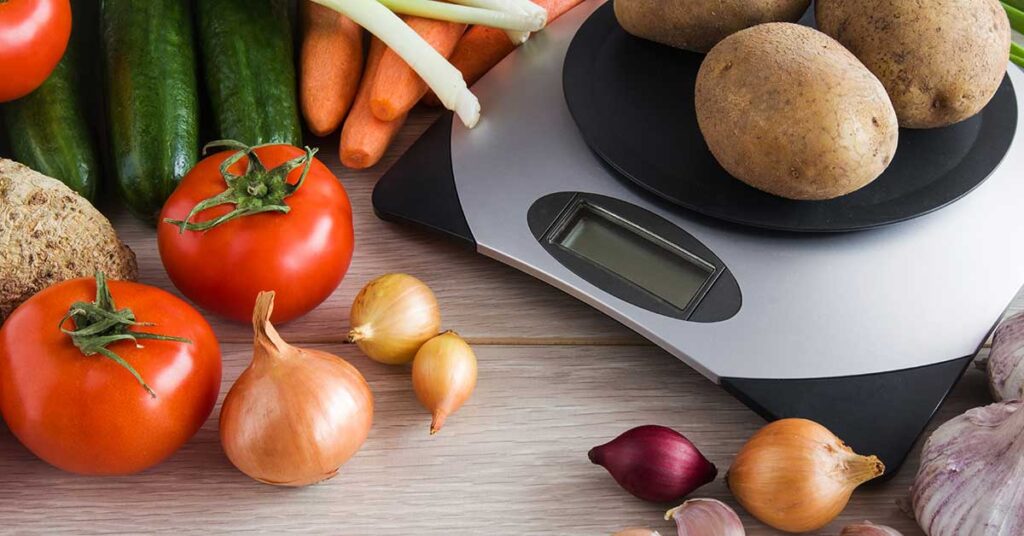
Many people who are engaged in weight loss do not do this freehand, but count the calories they take in. You start with a calculation of what your needs would be and from there you draw up a schedule with the foods that fit within that schedule. You take into account the macros, but also health and, where possible, taste / enjoyment. This is just not telling the whole story, today I will show you how important it is to be consistent with what you do!
QUESTIONS, QUESTIONS AND MORE QUESTIONS
Yet many questions arise around calculating calories from foods. First of all, there are different websites and books that show different macros for the same foods. However, it is impossible to buy every product in the store and put together all your schedules that way. In addition, are the labels really correct? And how do you count when you eat out?
Another one that I often encounter is weighing meat before or after preparation. Do you count the calories and carbohydrates from vegetables or not? Strictly speaking, dietary fibers are carbohydrates, but do they count the same? Dietary fiber often does not count in calories on labels. Nevertheless, our body can certainly obtain calories from some fibers, sometimes via bacteria in the intestines. Another question that raises more questions …

ACTUALLY, WE DON’T KNOW MUCH
Whether you work according to IIFYM , weigh your diet, or guess your portions by feeling, you count in one way or another. Good results can certainly be obtained with each of these methods. This also automatically means that there is not just one way to count calories.
However you measure how much you ingest, it is good to realize that we are not at all as accurate in measuring as we think. It goes without saying that people are usually very bad at gambling weight. Pick up a cup, guess what it weighs and then put it on the scales. Then grab a knife and do the same. There is a good chance that you were way off with both and maybe even wrongly guessed which of the two was heavier. Not every apple weighs the same and not every peach contains the same number of calories. One piece of chicken may contain more fat than another piece of chicken. Even if you already weigh, the macros may still not be correct. There are so many factors involved in how many calories, macros and micronutrients something contains that it simply cannot be measured accurately.
LOOK AT THE BIG PICTURE
You actually do research every day when you measure or weigh your nutrition. Just like scientific research, we can do our best to approximate reality, but we are never 100% sure that something is completely correct. This is the best way to go with it to be consistent. The nutritional inconsistency of what you eat can be filtered out by being consistent in what you do. This applies to weighing food, but also, for example, to intermittent fasting without counting calories (this can also be a ‘measurement’ method).
Anyone looking to lose weight is trying to find a way to be and stay in a calorie deficit. The easiest way to do this is to be consistent in what you do. You don’t have to be accurate in what you do (know exactly what you are getting in). All you have to do is make changes from what you did if what you did doesn’t get you to your goals. That, in turn, is easiest if you work and work consistently.
THIS WAY YOU MAKE CONSISTENT CHANGES
If you always weigh your food unprepared and you no longer lose weight, take a little less unprepared product at a time. If you always weigh your food prepared and you no longer lose weight, take a little less prepared product at a time. There is no right or wrong here, even though 100 grams of raw chicken will be around 120 kcal and 100 grams of cooked chicken may be 180 kcal. 100 grams of uncooked rice will be around 370 kcal, 100 grams of cooked rice maybe only 150.
Do you always take a fist-size of protein per serving and a thumb-size of fat and do you no longer lose weight? Take a little less. It is important to be consistent with your measurement method and to use the same measurement method for a longer period of time.

CONSISTENCY- PRECISION
Losing weight does not mean that you measure very accurately how much you are taking in every day. Being short in a month is much more important than how accurately you measure one or a few individual days. Being on average for a day on a shortage is more important than having that one meal much larger than planned. And that one meal is more important than weighing your vegetables super accurately. For weight loss, the big picture is the most important. One meal isn’t going to ruin your progression. Not one day either. And not a week either. As long as the entire month was short.
This does not mean that you only have to do your best for 5 days and that you can eat and drink everything that is loose and stuck during the weekend because ‘5 days weigh more than 2’. Unfortunately, it doesn’t work that way, as you can read in this article .
THIS IS HOW YOU DEAL WITH EXCEPTIONS
When you have a dinner at the weekend, it is of course not very pleasant to take your scale with you to the restaurant. Apart from the sensible choices you can make (because yes, with 1 good meal you can undo a week of work #unlimitedsushi) I would recommend taking your measurements on Friday morning. In this way, dinner will not affect the measurements and you will have quite a few days to filter out the changes in weight caused by water, salt, glycogen, stool, stress on your digestive system, etc.
This way, if you are consistent with what kind of serving you take and how you eat during the week, you can eat out every week on Friday and still lose weight. It is of course important for this that the calorie deficit during the week is large enough to make up for this dinner and that this dinner is not one time a salad and the next time a 12-course dinner with double desserts.
FIGURES SAY LESS THAN YOU THINK
The above rules apply even more to people who have to lose a lot of weight. Fat mass is also living tissue and also consumes energy. The metabolism of someone with a lot of fat is higher than that of someone with the same amount of muscle mass and activity who has little fat.
These rules are less easy to apply when you do a minicut of a few weeks. Being off by a week in a six-month trajectory is less significant than screwing up a week in an 8-week cut.
However, many people focus on the short term goal. “I want to lose 20 kilos, so tomorrow I want to be lighter than today” . This line of thought can take the pleasure very much off the entire process and also does not take into account hormonal fluctuations, dinners, stress, one time less pooping and working on lifestyle factors that will definitely help you in the longer term.
Some people drink more while losing weight and are therefore better hydrated. This has a positive effect on everything, including the number that the scale shows. Up. They adjust their training method, which is sometimes more stress on the body, resulting in temporarily more water weight. Insulin sensitivity improves, so that more carbohydrates are stored in muscles than in adipose tissue. However, a gram of glycogen retains much more water (in your muscle) than the same amount of calories stored as fat.
The measurements you take only count if you also have the ability to interpret these measurements in the context in which they take place.

CORRECT INTERPRETATION IS IMPORTANT
This is where a coach can help you. The best coaches have their own coach and this also applies to ‘normal’ people. All these fluctuations in weight and appearance can potentially make you hugely insecure about your approach, so you just don’t have to be: Consistent .
The problem with all the formulas that exist to calculate your maintenance needs, all the labels on foods, all the studies that are done, is that they are based on averages. However, almost everything and everyone has a deviation from this average, so on average all this data is inaccurate.
This also applies to methods of calculating your maintenance needs and even more so for individuals who are heavier, more muscular or more active than average. If, miraculously, you manage to accurately calculate your maintenance needs, this calculation is still worth less or nothing if your activity increases, you change your training, you spend the night once, you go to work at home and take several thousand fewer steps and have to climb fewer stairs or even if you change the macro ratios.


